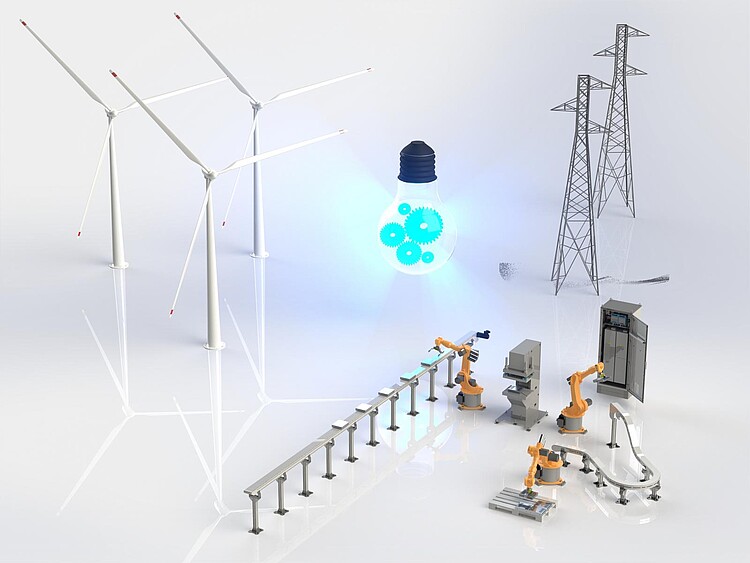Smart Control System for Increasing the Efficiency of Industrial DC Mircogrids

| Team: | M. Sc. Elias Knöchelmann |
| Year: | 2017 |
| Funding: | Bosch Rexroth AG. |
| Is Finished: | yes |
Smart Control System for Increasing the Efficiency of Industrial DC Mircogrids
The turnaround in energy policy is one of the major current challenges for the manufacturing industry in Germany. In addition to the creation of an efficient energy infrastructure at a supraregional level, local efforts are required by every energy user. Increasing energy efficiency in production, increasing the flexibility to respond to fluctuating energy supplies, and increasing the robustness of production to varying energy supply quality are tasks that must be intensified in the near future.
In the industrial environment the 400V three-phase power supply is the standard. The rotational speed of rotary field machines, for this type of power supply sytem, depends on the mains frequency of the power supply. So converter systems are used to vary the frequency of the motor field and change the motor’s speed. The converter systems consist of a rectifier which supplies a DC voltage intermediate circuit, and a three-phase pulse inverter, which provides the rotating field for the motor. Since the rectifiers are usually designed as diode bridges and not as active front ends, no feedback to the 400V three-phase system is possible.
By replacing the three-phase grid with a DC grid, it is possible to exchange electrical energy in the entire factory, which allows the use of a central energy storage at the factory level. The decentralized rectifiers are eliminated, resulting in space savings. The ability to integrate electrically commutated DC motors (EC motors) is increased. These are characterized by their high energy density and their ease of manufacture.
In the field of DC grid installation technology is a great need for research in many areas. DC grid components are hardly standardized or industry-specific available. In addition, grid stability and load behavior must be analyzed.
The possibility of energy exchange at the factory level is the focus of this project. Electrical energy generated by braking processes no longer has to be converted into heat in brake resistors, but can be distributed to other systems. The aim of this project is to develop intelligent control of the systems within a DC link circuit to reduce the energy absorbed by the production line. The next step is to extend the energy control system to energy storage and variable renewable energies. Emphasis is on the depth of simulation, the size of the influence of various factors, the energy storage control and the construction of an intelligent control, which actively intervenes in the process.
The project is a cooperation project with Bosch Rexroth AG.
